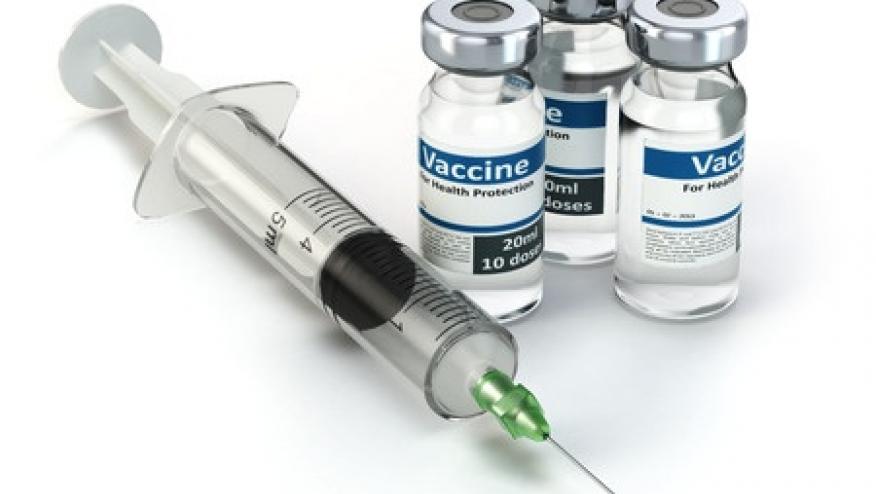Influenza Vaccination Update Save

FDA's Vaccines and Related Biological Products Advisory Committee met in Silver Spring, Maryland, on March 6 and 22, 2019, to select the influenza viruses for the composition of the influenza vaccine for the 2019-2020 U.S. influenza season. During this meeting, the advisory committee reviewed and evaluated the surveillance data related to epidemiology and antigenic characteristics of recent influenza isolates, serological responses to 2018-2019 vaccines, and the availability of candidate strains and reagents.
The committee recommended that the trivalent formulation influenza vaccines for the U.S. 2019-2020 influenza season contain the following:
- an A/Brisbane/02/2018 (H1N1)pdm09-like virus;
- an A/Kansas/14/2017 (H3N2)-like virus;
- a B/Colorado/06/2017-like virus (B/Victoria lineage).
The committee also recommended that quadrivalent influenza vaccines contain the above three strains and the following additional B strain:
- a B/Phuket/3073/2013-like virus (B/Yamagata lineage)
The FDA has release information on released influenza vaccination lots.
Flu vaccine lots that have been released by FDA and are available for distribution by the manufacturers. For information on flu vaccine distribution schedules, please contact the following manufacturers directly.
- Afluria Quadrivalent, Seqirus Pty, Fluad, Seqirus, Fluarix Quadrivalent, GlaxoSmithKline Biologicals, Flublok Quadrivalent, Protein Sciences Corporation, Flucelvax Quadrivalent, Seqirus, FluLaval Quadrivalent, ID Biomedical Corporation of Quebec, FluMist Quadrivalent, MedImmune, Fluzone High Dose, Sanofi Pasteur, Fluzone Quadrivalent, Sanofi Pasteur.
EULAR has also come out with new guidelines for the vaccination in adult patients with autoimmune inflammatory rheumatic diseases (AIIRD). Specifically these state that influenza vaccination should be strongly considered for the majority of patients with AIIRD. (Citation source: https://buff.ly/2ZP5uka)
The 2019 EULAR guidelines are based on systematic literature reviews leading to recommendations based on the evidence and expert opinion. This includes 6 overarching principles and 9 recommendations.
Key elements of this publication are the the need for an annual vaccination status assessment, vaccination during quiescent disease (preferably prior to immunosuppressants), non-live vaccines can be safely provided to all, whereas live-attenuated vaccines should be used with caution in most and avoided during the first 6 months of life in newborns of mothers treated with biologics during the second half of pregnancy.
The 2019 EULAR recommendations provide an up-to-date guidance on vaccinations in patients with AIIRD.
Overarching Principles
- The vaccination status and indications for further vaccination in patients with AIIRD should be assessed yearly by the rheumatology team.
- The individualised vaccination programme should be explained to the patient by the rheumatology team, providing a basis for shared decision-making, and be jointly implemented by the primary care physician, the rheumatology team and the patient.
- Vaccination in patients with AIIRD should preferably be administered during quiescent disease.
- Vaccines should preferably be administered prior to planned immunosuppression, in particular B cell depleting therapy.
- Non-live vaccines can be administered to patients with AIIRD also while treated with systemic glucocorticoids and DMARDs.
- Live-attenuated vaccines may be considered with caution in patients with AIIRD.
Recommendations
- Influenza vaccination should be strongly considered for the majority of patients with AIIRD.
- Pneumococcal vaccination should be strongly considered for the majority of patients with AIIRD.
- Patients with AIIRD should receive toxoid tetanus vaccination in accordance with recommendations for the general population. Passive immunisation should be considered for patients treated with B cell depleting therapy.
- Hepatitis A and hepatitis B vaccination should be administrated to patients with AIIRD at risk. In specific situations booster or passive immunisation is indicated.
- Herpes zoster vaccination may be considered in high-risk patients with AIIRD.
- Vaccination against yellow fever should be generally avoided in patients with AIIRD.
- Patients with AIIRD, in particular patients with SLE, should receive vaccinations against HPV in accordance with recommendations for the general population.
- Immunocompetent household members of patients with AIIRD should be encouraged to receive vaccines according to national guidelines with the exception of the oral polio vaccines.
- Live-attenuated vaccines should be avoided during the first 6 months of life in newborns of mothers treated with biologics during the second half of pregnancy.










If you are a health practitioner, you may Login/Register to comment.
Due to the nature of these comment forums, only health practitioners are allowed to comment at this time.